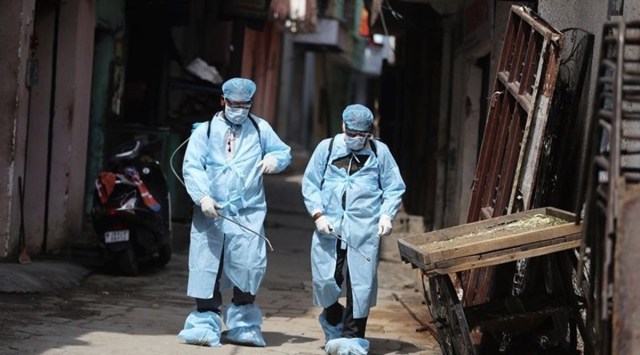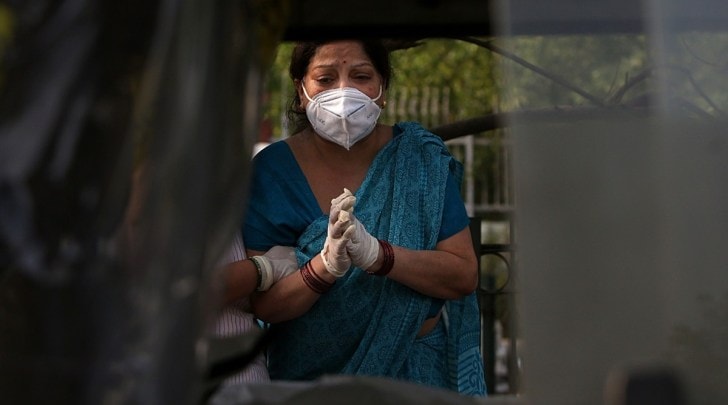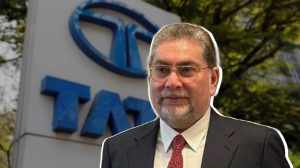Some members of the Covid-19 task force, a technical expert body that advises the Central Government, are “pushing hard” for a national lockdown, The Sunday Express has learnt.
The fierce surge in cases, triggered by an infectious — and, possibly, more lethal — variant, these experts argued, threatens to overwhelm the already creaking health infrastructure. India Saturday reported an unprecedented 4.01 lakh Covid-19 cases and 3,523 deaths in the last 24 hours.

The task force includes experts from premier health institutions, including AIIMS and ICMR, and has met many times during the recent surge. The deliberations of these experts are of significance since the chairperson of the task force, V K Paul, reports to Prime Minister Narendra Modi.
Story continues below this ad
Significantly, this call for a lockdown comes even as Modi, in his address to the nation April 20, had underlined that all efforts should be made to avoid a lockdown which should be used only as the “last resort.”
That day, India had reported 2,59,170 new cases and 1,761 new deaths; the case active load was 21.50 lakh and 1.82 lakh had succumbed to the infection. Ten days later, the active case load is at 32 lakh cases and the country has reported 2.11 lakh deaths.
“The Covid-19 task force is trying to say this very aggressively for the last few weeks. That we should tell the people at the top that we should have a lockdown,” a member said. “A nationwide lockdown rather than what we are doing now, in bits and pieces across states, because of the simple fact that it is spreading all over,” a member said.
“We are looking at the wrong end of tunnel. Healthcare infrastructure cannot expand indefinitely, oxygen supplies have been ramped up but still there is shortage given the case load. It’s clear that we have to decrease the cases. It is a human-to-human spread. For at least two weeks, if we are able to stop that, we will decrease the case load. That will help decrease mortality, give some relief to health infrastructure and cut the cycle of transmission,” a member said.
Story continues below this ad
 At a crematorium in New Delhi (Express Photo: Tashi Tobgyal)
At a crematorium in New Delhi (Express Photo: Tashi Tobgyal)
A lockdown is a blunt instrument and it brings hardship to many sections of the society, especially the poor and the vulnerable – including migrant workers in the city — but it is “only acceptable scientific tool to bring the surge under control,” said another member of the task force.
The experts have flagged three key factors.
One, the rampant transmission can only be brought under control by a lockdown. “When you say there is community transmission, the whole philosophy of testing, tracking and tracing is actually not that important. Because you don’t know who to trace and track when you have so many cases. The only way out is to prevent transmission by assuming everyone is positive and you have to prevent them from coming in contact. That is a lockdown. This has been done in other countries,” a member said.
Indeed, speaking to The Indian Express Friday, Anthony Fauci, one of Covid’s most trusted global voices, said that an “immediate” shutdown for a “few weeks” could put an end to the cycle of transmission in India. That will also provide a window, he said, to take critical “immediate, intermediate, and long range” steps out of this “very difficult and desperate” situation.
Two, there is a “growing anger building up” within the medical community. “They (the doctors) ask why are we not doing anything to contain the spread. We have ambulance after ambulance lined up, patients pleading, perpetual shortage of oxygen cylinders, there is lot of unrest among doctors. There has to be a pause. Infection among health-care workers is also rising,” a member said.
Story continues below this ad
 Mourning the death of a relative at Batra Hospital in New Delhi on Saturday. (Photo: Gajendra Yadav)
Mourning the death of a relative at Batra Hospital in New Delhi on Saturday. (Photo: Gajendra Yadav)
Third, the situation emerging in rural India, experts said, needs to be urgently addressed. “We don’t know what is going to happen there. Forget critical care infrastructure, small towns and villages aren’t prepared at all. We cannot live in denial,” a member said. As The Indian Express reported today, predominantly rural districts in Bihar have seen a nine/ten-fold increase in case count as compared to the count during the peak last year.
Several states in the country are already in some form of lockdown mode. In most states, places where people gather — shopping malls, gyms, cinema halls, etc, — are shut and there are restrictions on the number of people who can assemble for marriages, funerals, etc.
In Karnataka, all public and private transport is banned. Even grocery shops are open only from 6 am to 10 am and factories work at 50 per cent. In Gujarat, as many as 29 cities have night curfew, when public transport can run at 50 per cent capacity. Mumbai has allowed public transport only for essential services. West Bengal has a partial lockdown: no restriction on transport, and shops are open for a few hours in the morning and evening. Some others like Uttar Pradesh, Assam, Telangana, Andhra, Odisha and Rajasthan have imposed night or weekend curfews with public transport banned only during curfew hours.



 At a crematorium in New Delhi (Express Photo: Tashi Tobgyal)
At a crematorium in New Delhi (Express Photo: Tashi Tobgyal) Mourning the death of a relative at Batra Hospital in New
Mourning the death of a relative at Batra Hospital in New 





